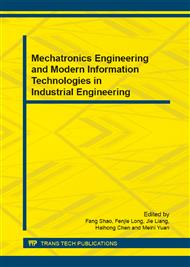[1]
N. Apostolescu, R. Chiriac, A Study of Combustion of Hydrogen Enriched Gasoline in a Spark Ignition Engine. SAE Paper. No. 960603, (1996).
DOI: 10.4271/960603
Google Scholar
[2]
T. Allgeier, M. Klenk, T. Landenfeld, Advanced emissions and fuel economy control using combined injection of gasoline and hydrogen in SI-engines. SAE Technical Paper. No. 2004-01-1270, (2004).
DOI: 10.4271/2004-01-1270
Google Scholar
[3]
C. Ji, S. Wang, B. Zhang, Effect of spark timing on the performance of a hybrid hydrogen-gasoline engine at lean conditions. Int. J. Hydrogen Energy. Vol. 35 (2010), pp.2203-2212.
DOI: 10.1016/j.ijhydene.2010.01.003
Google Scholar
[4]
C. Ji, S. Wang, Effect of hydrogen addition on the idle performance of a spark ignited gasoline engine at stoichiometric condition. Int. J. Hydrogen Energy. Vol. 34 (2009), pp.3546-3556.
DOI: 10.1016/j.ijhydene.2009.02.052
Google Scholar
[5]
S. Wang, C. Ji, M. Zhang, B. Zhang, Reducing the idle speed of a spark-ignited gasoline engine with hydrogen addition. Int. J. Hydrogen Energy. Vol. 35 (2010), pp.10580-10588.
DOI: 10.1016/j.ijhydene.2010.08.002
Google Scholar
[6]
S. Wang, C. Ji, B. Zhang, Effects of hydrogen addition and cylinder cutoff on combustion and emissions performance of a spark-ignited gasoline engine under a low operating condition. Int. J. Hydrogen Energy. Vol. 35 (2010), pp.4754-4760.
DOI: 10.1016/j.energy.2010.09.015
Google Scholar
[7]
L. N. Bortnikov, Combustion of a gasoline-hydrogen-air mixture in a reciprocating combustion engine cylinder and determining the optimum gasoline-hydrogen ratio. Combustion, Explosion, and Shock Waves. Vol. 43 (2007), pp.378-383.
DOI: 10.1007/s10573-007-0052-z
Google Scholar
[8]
C. Ji, S. Wang, Effect of hydrogen addition on combustion and emissions performance of a spark ignition gasoline engine at lean condition. Int. J. Hydrogen Energy. Vol. 34 (2009), pp.7823-7834.
DOI: 10.1016/j.ijhydene.2009.06.082
Google Scholar
[9]
H. Zhao, R. Stone, L. Zhou, Analysis of the particulate emissions and combustion performance of a direct injection spark ignition engine using hydrogen and gasoline mixtures. Int. J. Hydrogen Energy. Vol. 35 (2010), pp.4676-4686.
DOI: 10.1016/j.ijhydene.2010.02.087
Google Scholar
[10]
T. D' Andrea, P. F. Henshaw, D. S. K. Ting, The addition of hydrogen to a gasoline-fuelled SI engine. Int. J. Hydrogen Energy. Vol. 29 (2004), pp.1541-1552.
DOI: 10.1016/j.ijhydene.2004.02.002
Google Scholar
[11]
S. Verhelst, P. Maesschalck, H. Rombaut, R. Sierens, Efficiency comparison between hydrogen and gasoline, on a bi-fuel hydrogen/gasoline engine. Int. J. Hydrogen Energy. Vol. 34 (2009), pp.2504-2510.
DOI: 10.1016/j.ijhydene.2009.01.009
Google Scholar


